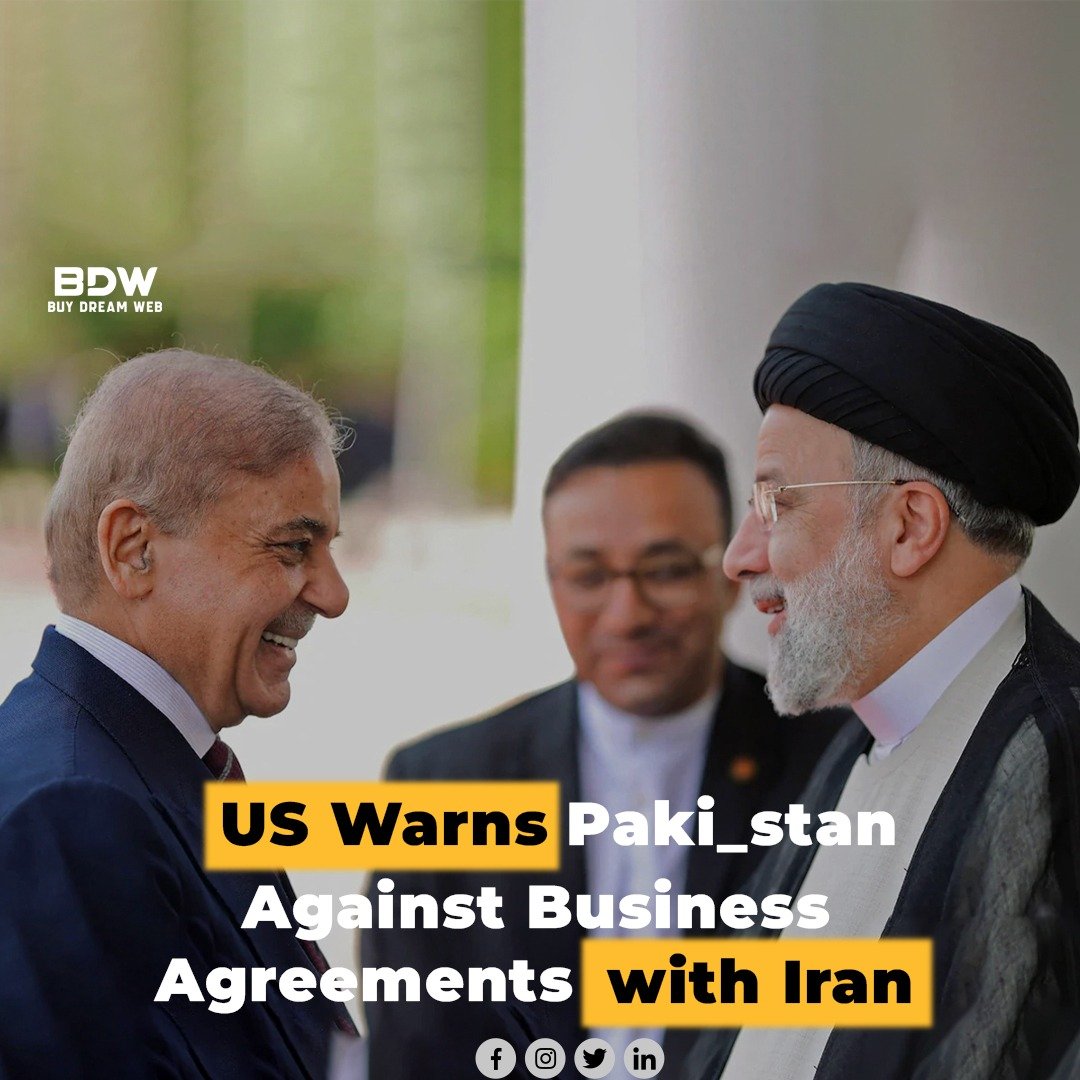US-Pakistan Tensions Flare as US Warns Against Iran Deals: Navigating a Complex Relationship
The recent warning issued by the US towards Pakistan regarding potential business agreements with Iran has reignited tensions in a historically complex relationship. This blog delves into the background of this development, explores the potential implications for both countries, and examines the broader geopolitical landscape surrounding US-Pakistan relations and Iran’s role in the region.
A Warning Shot: Understanding the US Stance
The US State Department has cautioned Pakistan against pursuing business deals with Iran, citing concerns about potential sanctions violations. Here’s a breakdown of the US perspective:
- Proliferation Concerns: The US remains wary of Iran’s nuclear program and ballistic missile development. They might fear economic deals could indirectly benefit these programs.
- Sanctions Regime: The US maintains economic sanctions on Iran aimed at pressuring its government on multiple fronts. They might worry that business deals with Iran could undermine this pressure.
- Strategic Competition: The US and Iran hold opposing geopolitical views. The US might see economic ties between Pakistan and Iran as strategically disadvantageous.
The US position highlights the complex web of geopolitical considerations influencing their foreign policy decisions.
A Balancing Act: Pakistan’s Strategic Dilemma
Pakistan finds itself caught in a difficult situation:
- Economic Opportunities: Strengthening ties with Iran could offer Pakistan access to new markets and energy resources.
- Regional Security: Iran shares a border with Pakistan, and maintaining a stable relationship is vital for regional security.
- Domestic Considerations: Public opinion in Pakistan may favor closer relations with Iran, particularly on economic issues.
Pakistan needs to navigate this complex situation while safeguarding its national interests.
Beyond the Warning: The Broader Context of US-Pakistan Relations
The US-Pakistan relationship has a long and often turbulent history:
- Cold War Allies: During the Cold War, Pakistan was a key US ally in the region.
- Post-9/11 Cooperation: Following the 9/11 attacks, the US and Pakistan collaborated in the fight against terrorism.
- Friction and Frustration: Disagreements over US drone strikes, Pakistan’s alleged support for some militant groups, and suspicions about Pakistan’s nuclear program have led to friction in recent years.
The current warning regarding Iran adds another layer of complexity to this already strained relationship.
Iran’s Role in the Region: A Strategic Chessboard
Iran’s influence in the Middle East is a significant factor:
- Regional Rivalries: Iran has complex relationships with various regional players, including Saudi Arabia and Israel.
- Economic Challenges: Iran faces economic struggles due to sanctions, making new economic partnerships potentially appealing.
Pakistan’s decision regarding dealings with Iran will undoubtedly be influenced by the broader regional geopolitical landscape.
Navigating the Uncertain Path: Potential Scenarios and Solutions
The future trajectory of this situation remains uncertain. Here are some potential scenarios:
- Pakistan Heeds the Warning: Pakistan could opt to limit economic ties with Iran to avoid jeopardizing its relationship with the US.
- Pakistan Defies the Warning: Pakistan might choose to pursue economic opportunities with Iran, potentially leading to US sanctions and a further deterioration in relations.
- Negotiation and Diplomacy: Pakistan and the US could engage in dialogue to find a solution that addresses both security concerns and economic opportunities.
A Look Ahead: The Importance of Dialogue and Co-operation
The US-Pakistan relationship and the regional dynamics surrounding Iran necessitate effective communication and collaboration:
- Open Dialogue: The US and Pakistan need to openly discuss their concerns and explore ways to address them without resorting to ultimatums.
- Focus on Shared Interests: Both countries share an interest in regional stability and countering terrorism. Focusing on these shared objectives can build bridges.
- Respecting Pakistan’s Sovereignty: The US should acknowledge Pakistan’s right to pursue economic partnerships based on its national interests.
- Finding Common Ground with Iran: The international community needs to continue diplomatic efforts aimed at finding common ground with Iran.
By fostering dialogue and pursuing a collaborative approach, all parties involved can find a path forward that promotes security, economic prosperity, and regional stability.
Article Link: https://www.business-standard.com/

 +44 747720 4635
+44 747720 4635


Comments are closed